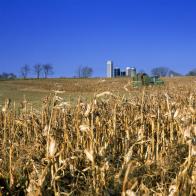UN: The Downside of Biofuels
 The UN has joined the growing number of voices issuing concern over biofuels.
The UN has joined the growing number of voices issuing concern over biofuels.
In the most comprehensive survey yet completed of energy crops, it argues that the global rush to produce energy crops threatens to bring food shortages, increase poverty and drive deforestation, pushing small farmers off the land.
The UN report, compiled by all 30 of the world organisation’s agencies, points to crops like palm oil, maize, sugar cane, soya and jatropha. The UN urges governments to beware of their human and environmental impacts, some of which could have irreversible consequences.
The UN warns: “Where crops are grown for energy purposes the use of large scale cropping could lead to significant biodiversity loss, soil erosion, and nutrient leaching. Even varied crops could have negative impacts if they replace wild forests or grasslands.”
“Expanded production [of biofuel crops] adds uncertainty. It could also increase the volatility of food prices with negative food security implications”, says the report which was complied by UN-Energy. “At their worst, biofuel programmes can also result in a concentration of ownership that could drive the world’s poorest farmers off their land and into deeper poverty,” it says.
“Bioenergy provides us with an extraordinary opportunity to address climate change, energy security and rural development. [But] investments need to be planned carefully to avoid generating new environmental and social problems,” said Achim Steiner, executive director of UN Environment programme yesterday.
